Tag Archive for: Civics

MBTAAnalysis: A look inside the MBTA
0 Comments
/
The MBTA shuttles over a million passengers a day around Greater…
 https://pioneerinstitute.org/wp-content/uploads/CloseupClock-1.jpg
739
1244
Mary Connaughton
https://pioneerinstitute.org/wp-content/uploads/logo_440x96.png
Mary Connaughton2017-02-20 12:34:192017-02-21 09:47:58The Clock is Ticking…….
https://pioneerinstitute.org/wp-content/uploads/CloseupClock-1.jpg
739
1244
Mary Connaughton
https://pioneerinstitute.org/wp-content/uploads/logo_440x96.png
Mary Connaughton2017-02-20 12:34:192017-02-21 09:47:58The Clock is Ticking…….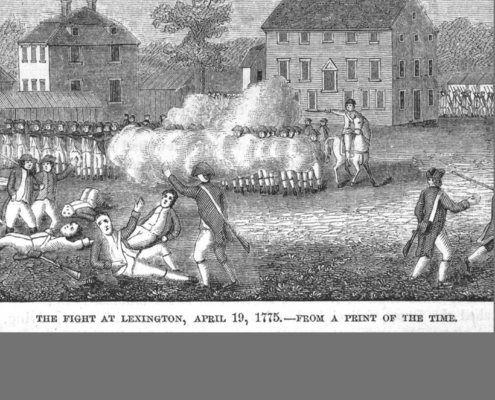
Better Civics Education Is the Massachusetts Way
The fight for more comprehensive civics education in the Bay State has persisted for years. The Legislature's recent override of Gov. Maura Healey’s cut to the state’s modest civics instruction budget suggests that in many in Massachusetts — including parents, teachers, and lawmakers — support strengthening the state’s civics and history curriculum, particularly with mounting evidence of declined student performance across the country.
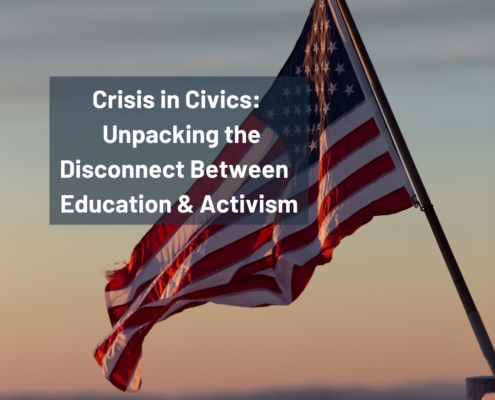
The Disconnect Between Education and Activism
I’m sympathetic when I hear individuals lament cancel culture, radicalized student bodies, and anti-free speech climates in our institutions of higher learning. In many ways, it's right to do so. But in our defense, I might suggest that our lack of aptitude is the result of increasingly substandard history and civics education.
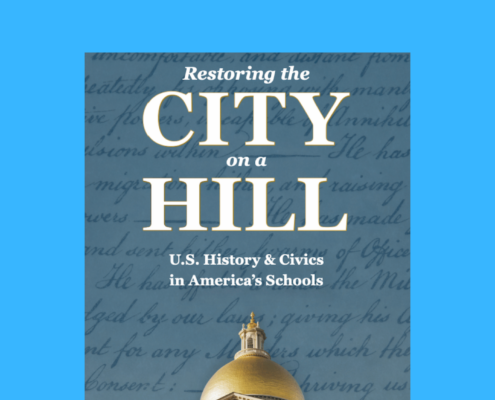
New Book Calls on States to Improve U.S. History and Civics Education
Pioneer Institute is today releasing Restoring the City on a Hill: U.S. History and Civics in America's Schools, which details the decline of history and civics knowledge among students and offers a plan for how states and local school districts can foster understanding of and curiosity about our nation's history.

Massachusetts Residents Score a ‘D’ in Poll Based on U.S. Citizenship Test
When asked a series of questions about how the federal government works that are based on the U.S. citizenship test, Massachusetts residents answered on average 63 percent of them correctly, earning a collective grade of “D” in a poll commissioned by Pioneer Institute and conducted by Emerson College Polling. The result is just over the 60 percent score required to pass the actual citizenship test.

Can Massachusetts Reverse the Decline in U.S. History and Civics Performance?
Massachusetts — home to so much history, including seminal events such as the Boston Tea Party — has much to be proud of in its own students’ history and civics performance. Even as policymakers have supplanted typical curricular standards with “engagement” mandates that students participate in progressive activism, national attitudes towards Massachusetts’ civic education have remained envious.

AEI’s Dr. Diana Schaub on the Founders, Lincoln, Frederick Douglass, & Civics
This week on The Learning Curve, Loyola University Maryland professor and AEI senior fellow Dr. Diana Schaub explores the legacies, speeches, and writings of Abraham Lincoln and Frederick Douglass, and how knowledge of U.S. history and primary sources can debunk revisionist approaches to teaching history and civics.

AEI’s Robert Pondiscio on E.D. Hirsch, Civic Education, & Charter Public Schools
This week on “The Learning Curve," Gerard Robinson and guest co-host Kerry McDonald talk with Robert Pondiscio, a senior fellow at the American Enterprise Institute. He shares his background working with curriculum expert E.D. Hirsch, Jr., who has emphasized the importance of academic content knowledge in K-12 education as well as civic education to develop active participants in our democracy. Pondiscio explains some of the findings of his book, How the Other Half Learns, on New York’s Success Academy charter schools network.
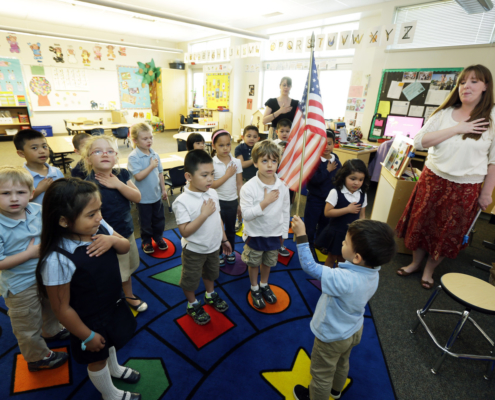
Civics Education is More Important than Ever
Rather than seeking to raise a generation of political activists and community organizers, civics programs should instill an informed love of our country based on the nation’s founding, how our system of government works, and what Americans have achieved – together with our many failings – since the nation was created.
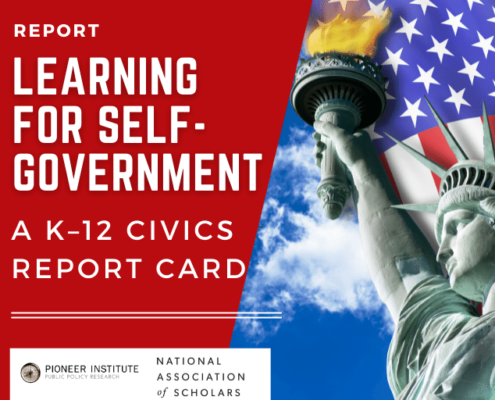
New Study Shows What Works for Civics Education
Americans strongly disagree about how our K-12 schools should teach our system of self-government. Dozens of organizations offer rival civics education resources and many of them don't work. A new study published jointly by Pioneer Institute and the National Association of Scholars offers in-depth evaluations of 15 leading civics programs, grades them on their effectiveness, and offers recommendations for how Americans should build upon these programs.

Learning for Self-Government: A K–12 Civics Report Card
This report, intended primarily for civics reformers considering how best to defend and improve traditional American civics education, surveys a selection of different civics offerings, both the traditional and the radical. Surveyed providers include organizations such as the Jonathan M. Tisch College of Civic Life, We the People, and Hillsdale College’s 1776 Curriculum. It also provides recommendations about how civics reformers should build upon this existing array of civics curriculum resources to work most effectively to reclaim America’s civics education.
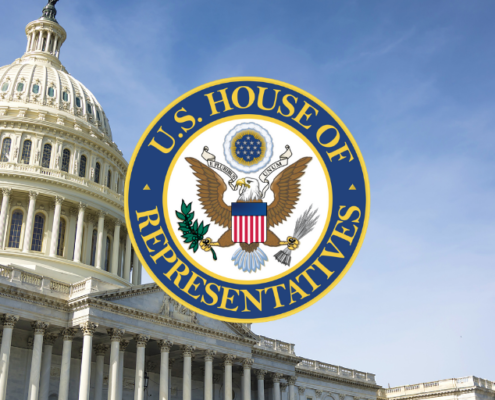
The People’s House The U.S. House Representatives – 40 Resources for High School Students
American schoolchildren need to know more about the basic civics and history of our key democratic institutions. To remedy this, we’re offering a variety of resources to help parents, teachers, and high schoolers:
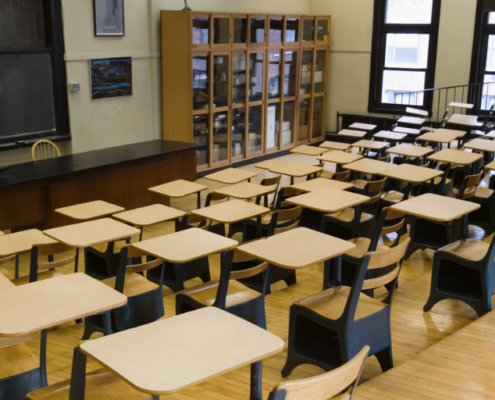
Rigorous Civics Education Needed Now More Than Ever
After decades of being overlooked, the importance of teaching US history and civics in public schools is at last gaining momentum. At the same time, the American Rescue Plan will bring an influx of tens of millions of dollars into Massachusetts schools. The confluence of these two events could transform civics education, but turning potential into reality will require combining a high-quality, fact-based curriculum with strong accountability measures.
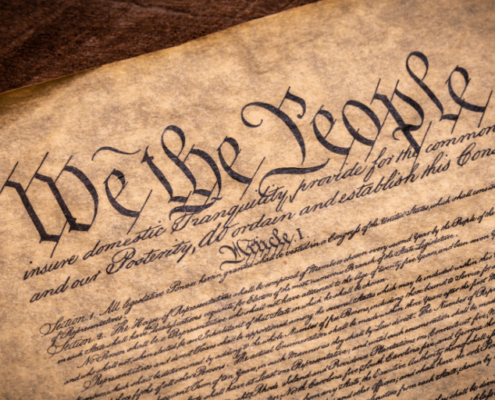
Easthampton High Scores A National Educational Victory During The COVID-19 Pandemic
This spring, Massachusetts’ Easthampton High School was crowned national champion in the “We the People: The Citizen and the Constitution” contest. The competition brings together about 1,200 students from across the country to answer civics questions based on America’s Founding Documents including the U.S. Constitution; The Federalist Papers; and U.S. Supreme Court decisions.
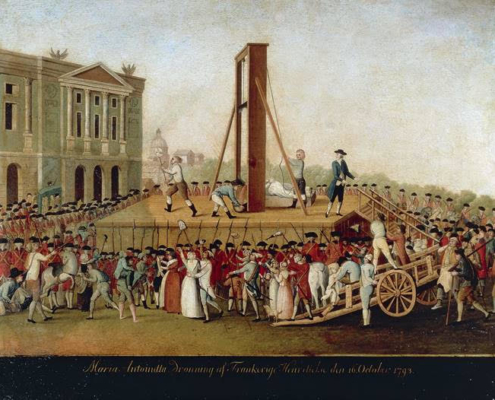
To Keep Our Republic, American Students Must Study The French Revolution
By Jamie Gass and Will Fitzhugh
This op-ed appeared in The…
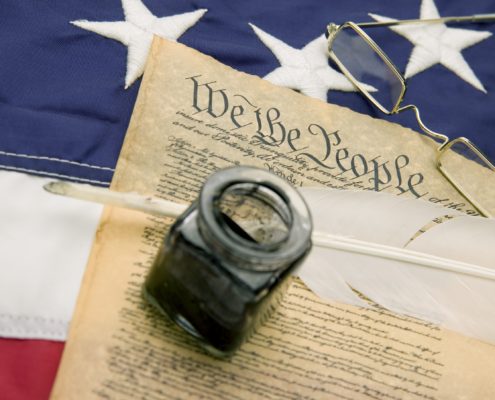
Op-ed: It’s Time to Strengthen—Not Reduce!—History in Our Classrooms
By Tom Birmingham
This op-ed appeared in the print edition…
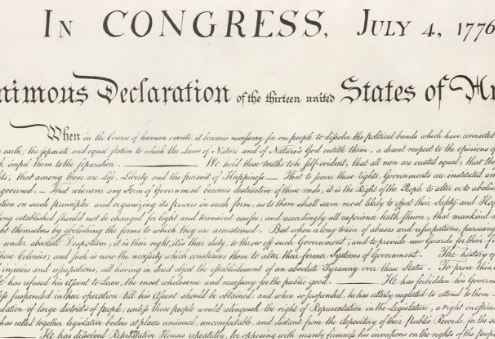
Cursive and Historical Literacy: A Real World Example
In the age of computers and modern convenience, the relevancy…
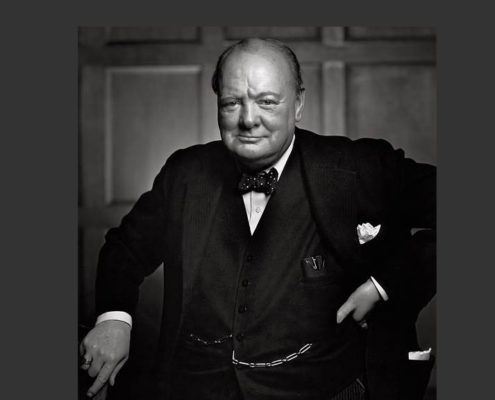
New Report on Advanced Civics for U.S. History Teachers, Preface by Churchill Biographer
Study Recommends That States Require Passage of U.S. History…
